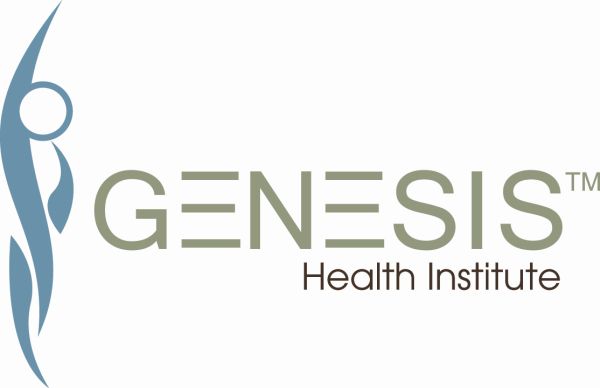Shellfish Allergy Treatment in Parkland, FL

Seafood—specifically shellfish—is a staple in many diets, touted for its many health benefits and for its delectable flavor. However, shellfish is considered one of the leading types of allergies in adults, and poses serious threats to your health and wellbeing upon its consumption.
A shellfish allergy is characterized by your body's abnormal and heightened immune response to one or many different types foods within the shellfish family, particularly to crustaceans like shrimp or lobster. Most people find out they have a shellfish allergy the first time they eat a bite of shrimp or crab and become ill, but shellfish allergies can also develop after years of previously enjoying shellfish with no symptoms.
Once you develop a shellfish allergy, however, it usually becomes a permanent fixture in your life. Symptoms can start out mild but increase in severity over time. You might experience mild itching when the allergy first appears, but shellfish allergies are known to cause swelling of your face and throat, and even anaphylactic shock.
If you notice an unusual response to shellfish, it should always be taken seriously, as it could be indicative of an allergic response to shellfish. To schedule a consultation with a healthcare provider in Parkland that specializes in shellfish allergy treatment, call (954) 248-3611 or contact Dr. Ferdinand Cabrera online.
Shellfish Allergy Symptoms
Like most allergy symptoms, shellfish allergy symptoms may exist from birth, appear suddenly or develop gradually. You may become progressively less tolerant to shellfish exposure, or you may have been able to tolerate exposure when you were younger, but as you age, you suddenly develop shellfish sensitivities you never experienced before. For some, these symptoms only manifest when consuming specific types of shellfish, but for most, these symptoms arise from consumption of any type of shellfish.
Depending on the shellfish that causes a reaction in your body, symptoms can vary but may include:
- Itching
- Hives
- Eczema
- Digestive distress including diarrhea or nausea/vomiting
- Tingling or swelling of the face (including lips and tongue) or throat
- Shortness of breath, wheezing or difficulty breathing
- Tightening of the chest
- Abdominal pain
- Dizziness
- Fainting
- Anaphylactic shock
What Should I Do If I Suspect I Have a Shellfish Allergy?
If you are experiencing an abnormal immune response or any of the above mentioned symptoms when you consume shellfish, it is important to schedule a consultation with a healthcare provider. Your healthcare provider will discuss your symptoms with you to help determine whether you have a shellfish allergy. Testing for shellfish allergy is available and will likely be utilized to isolate which shellfish you are most sensitive to and rule out different types of allergens like iodine, which may present similarly.
If your healthcare provider confirms you suffer from a shellfish allergy, your treatment will focus on preventative strategies to avoid future reactions; there is no cure for a shellfish allergy. He or she will help you to understand the nature of your shellfish allergy, addressing the symptoms and assessing your risk factors. The most critical part of your shellfish allergy care is to avoid exposure to shellfish. Your healthcare provider may give you a shellfish allergy list to help you navigate which types of seafood need to be avoided altogether. This list may include some of the most popular types of shellfish including:
- Shrimp
- Oysters
- Lobster
- Crab
- Mussels
- Squid/calamari
- Crawfish
- Clams
- Mollusks
- Abalone
- Octopus
- Conch
- Scallops
- Shrimp
- Conch
- Prawns
- Snails
Because shellfish is often added into other dishes and is not always an obvious ingredient, it is important to develop a plan for accidental exposure. Products like imitation shellfish, seafood flavorings, and various natural and artificial flavorings used in processed foods often contain shellfish product. Even foods that do not contain shellfish may be cross-contaminated if prepared in the same kitchen where shellfish is being prepared. As with many severe allergies, even touching or smelling shellfish can create dramatic and life-threatening reactions. Since severe allergic reactions can occur, if you have a shellfish allergy, you should carry a self-injectable epinephrine, also known as an EpiPen, with you for safety.
Your healthcare provider may also recommend measures to strengthen your immune system to respond more effectively to trigger foods and potentially minimize the severity of your shellfish allergic reaction. Certain vitamins and supplements—as well as lifestyle changes—may be recommended to shore up immune function, including:
- Probiotics
- Immunoglobulin G (IgG)
- L-glutamine
- Digestive enzymes
Determining whether you have shellfish allergy, knowing which foods and products to avoid and planning for accidental exposure may save your life. Request more information about shellfish allergy and your testing and treatment options today. Call (954) 248-3611 or contact Dr. Ferdinand Cabrera online.
Genesis Health Institute
Address
1001 NE 26th StWilton Manors, FL 33305
(954) 248-3611
www.ghinstitute.com
Hours
Tue:
8:00 am - 5:00 pm
Wed:
8:00 am - 5:00 pm
Thu:
8:00 am - 5:00 pm
Fri:
8:00 am - 5:00 pm
Sat:
8:00 am - 5:00 pm


